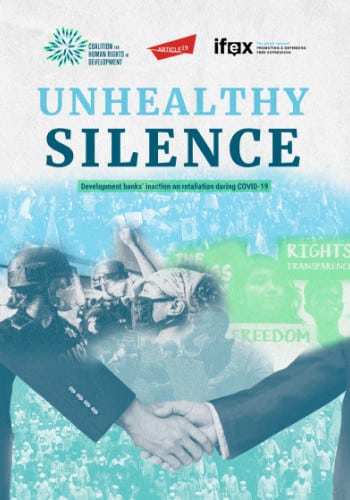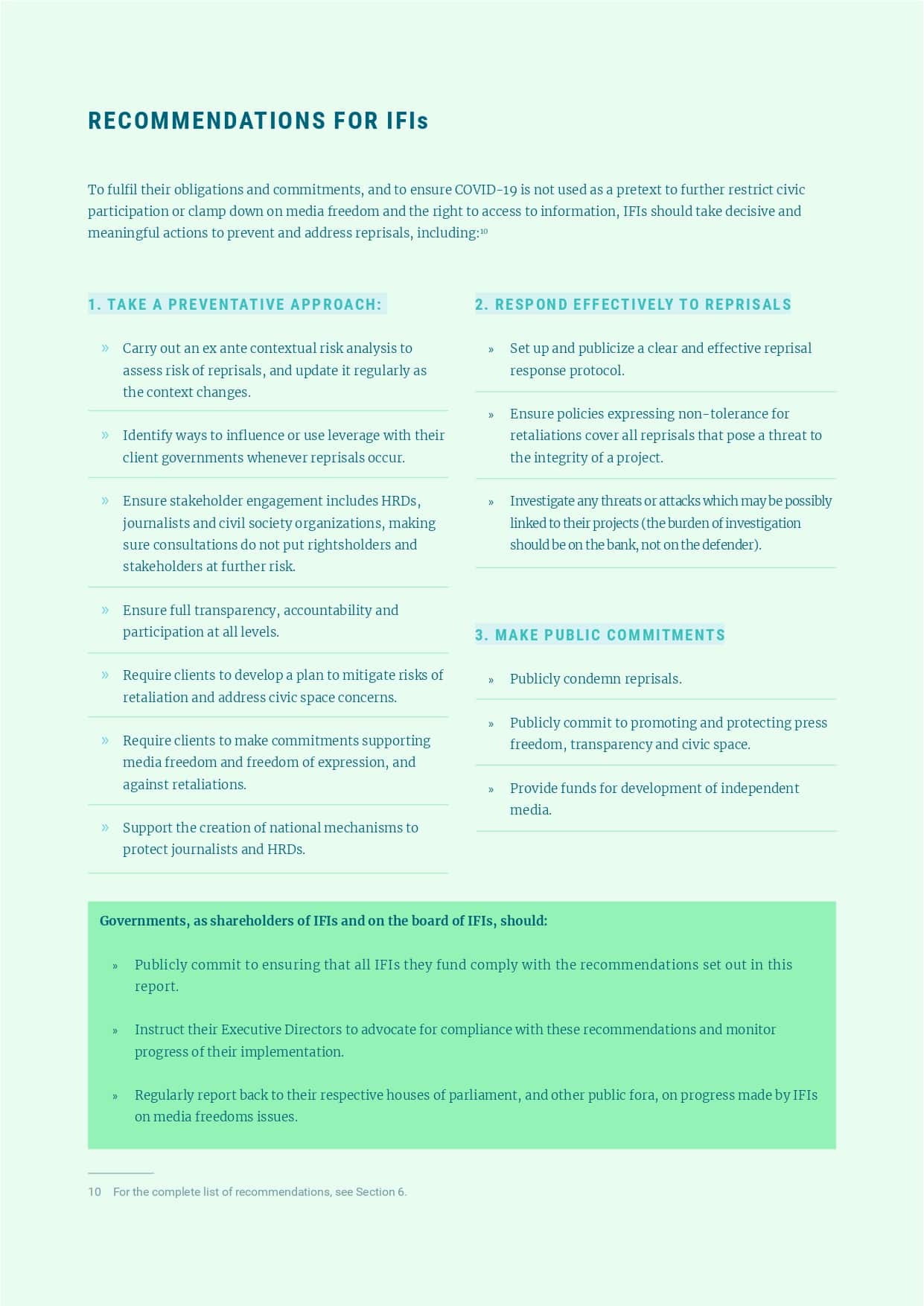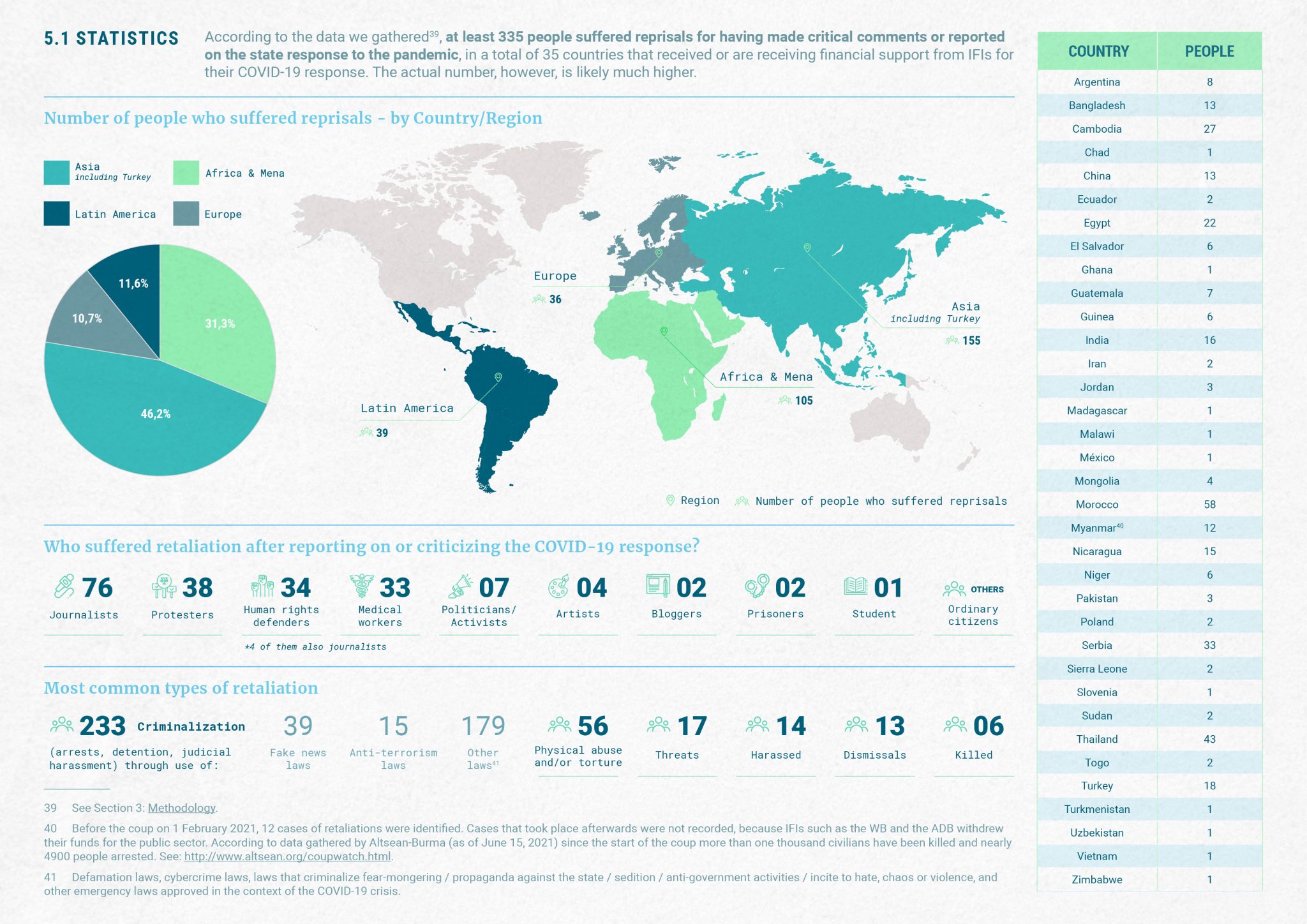
Since the beginning of the pandemic, doctors, nurses, journalists and other frontline workers have courageously criticized or scrutinized the inadequate responses to COVID-19 supported by governments, public development banks and other actors. For doing so, many of them have been threatened, attacked or arrested.
The report “Unhealthy silence: Development banks’ inaction on retaliation during COVID-19”, published on July 27, 2021 by the Coalition for Human Rights in Development, ARTICLE 19 and IFEX, sheds light on the vicious retaliations faced by those who have raised questions around the responses to the pandemic and exposes how development banks failed to take actions to prevent and address reprisals linked to the COVID-19 projects they supported.
Key Findings
- Journalists, human rights defenders, health workers and ordinary citizens have been criminalized or attacked for speaking out about aspects of the COVID-19 response directly financed by development banks.
- As of June 15, 2021, IFIs have earmarked US$ 150.54 billion to finance responses to COVID-19, through 1,332 projects. Many projects supported by IFIs have included awareness-raising about COVID-19 as a key component. However, in many of those same countries, people who provide information about the pandemic or speak about the spread of the virus have been strongly repressed.
- At least 335 people suffered reprisals, in a total of 35 countries that received or are receiving financial support for their COVID-19 response.
- In the vast majority of cases (affecting 233 people), the retaliation consisted of some type of criminalization, arrest or prison sentence; 56 people suffered physical abuse or torture; at least 13 people, almost all health personnel, were dismissed; 17 people were threatened; 6 people were killed.
- Most reprisals have occurred in a general context of strong restrictions on civic freedoms and the active persecution of dissenting voices.
- Restrictions on freedom of expression directly affect the quality and effectiveness of the response to COVID-19 that banks seek to support.

The COVID-19 pandemic has demonstrated how vital it is for people to be able to speak out and share information. And yet medical professionals, journalists, activists and others who have informed the public or questioned the way the crisis has been handled have faced harassment and attacks. International development banks, in particular, have failed to ensure that their loans are not being used to undermine the right to freedom of expression and information. We call on these institutions to protect freedom of expression by holding governments accountable, and to speak out when these and other freedoms are violated.
Would you like to help us hold development banks accountable and call on them to stop reprisals?

Stay in Touch
